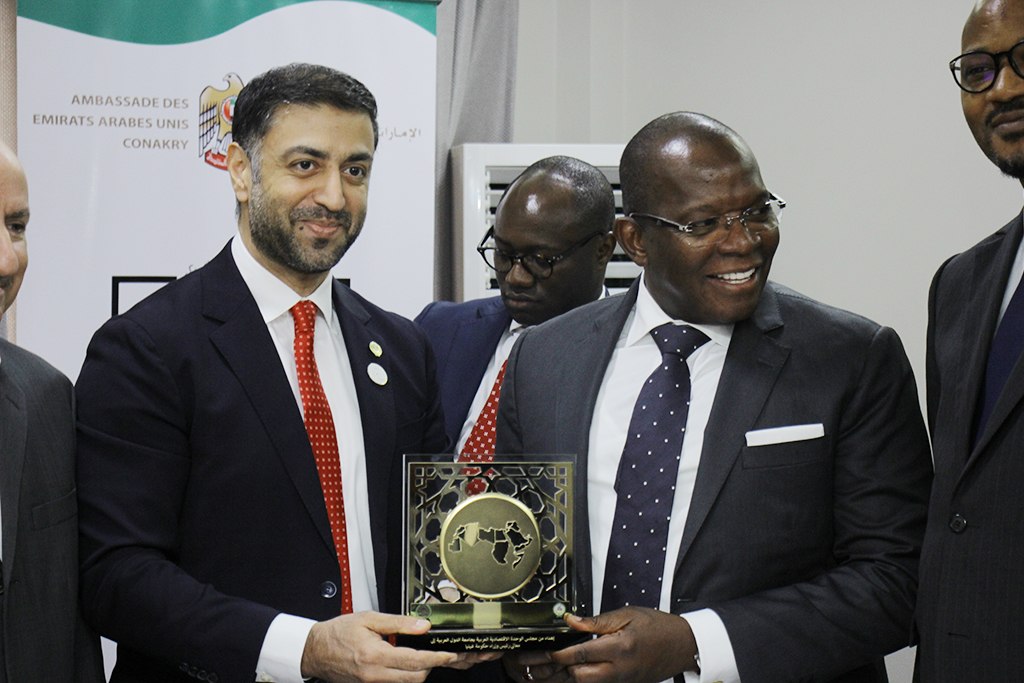
The Republic of Guinea, in cooperation with the Arab League, and the Council of Arab Economic Unity, aim at developing a strategic vision to support the foundation to build digital economy in the member countries of the Economic Community of West African States (ECOWAS), based on the strategic Arab common vision for digital economy, and to utilize the initiatives stemming from it for the plans of digital transformation and technological development in African countries.
This comes as one of the successful outcomes of the Arab common vision for digital economy, which was launched by the Arab League, and its launch was hosted by the United Arab Emirates, in Abu Dhabi conference, which was generously hosted by H.H. Sheikh Mohammed bin Zayed Al Nahyan, Crown Prince of the Emirate of Abu Dhabi and Deputy Supreme Commander of the United Arab Emirates Armed Forces, aiming at enabling and improving cooperation and collaboration.
This also comes within the efforts of those who are behind the Arab common vision for digital economy, headed by the Arab League, and UAE, aiming at widening the scope of the vision, to include the African countries, believing that it is very important to cope with the major global transformations in the fields of digital economy.
It is expected that «The African Common Vision for Digital Economy» would present programs and projects to develop technological and economic infrastructure in African countries, in addition to stimulating investments and to improve opportunities of economic growth in these countries.
It’s worth mentioning that the common vision for Arab digital economy includes around 50 pioneering projects for digital transformation in all Arab countries. This strategic vision was developed by the contribution of prestigious international establishments and organizations, like Harvard University, United Nations, World Bank, and the European Union, as well as number of Arab academic institutions like Cairo University, and an international committee of 70 international experts from public and private sectors.
– End of Text –
| About | |
|---|---|
| Initiatives | |
| Knowledge | |
| Services | |
| Media Center | |
| Contact |